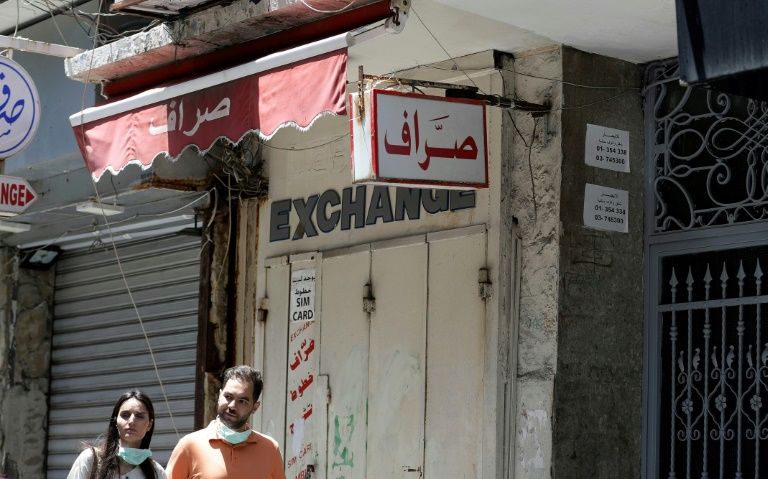Lebanese pound hits new low despite govt efforts, sparking protests
()
Many money changers in Beirut have closed due to a lack of dollars. ©AFP JOSEPH EID
The Lebanese pound sank to a record low on the black market Thursday despite the authorities’ attempts to halt the plunge of the crisis-hit country’s currency, money changers said.
Lebanon is in the grips of its worst economic turmoil in decades, and holding talks with the International Monetary Fund towards securing billions in aid to help overcome it.
Prolonged economic downturn was a major grievance that sparked unprecedented mass protests in October last year against the political class, accused of corruption and incompetence.
Protests broke out again on Thursday, with roads blocked across the country.
A throng of protesters blocked a key road in the centre of the capital Beirut, an AFP journalist reported.
“Thief, thief, Riad Salame is a thief!” demonstrators chanted, referring to the governor of the central bank.
“The people demand the fall of the regime!” they shouted.
Demonstrators also chanted slogans of national unity, following sectarian clashes shook Beirut during protests last weekend.
The highway north of the capital was blocked by protesters who set tires alight Thursday, according to local TV reports.
Similar demonstrations took place in Sour and Saida to the south, where protesters set fire to rubbish bins, according to the state-run National News Agency.
– Tumbling currency –
The Lebanese pound remains officially pegged to the US currency at a rate of 1,507 per dollar, but its value has tumbled on the black market.
Rates from three money changers on Thursday morning indicated it had lost almost 70 percent of its value there compared with the official rate.
One money changer who asked to remain anonymous said he was selling dollars at a rate of 5,000 pounds and buying them at 4,800.
Another in Beirut’s Dahiya neighbourhood was buying dollars for 4,850 pounds.
In the south of the country, one person said they had exchanged dollars at the rate of 4,750.
The new nadir came despite government pledges to halt the pound’s devaluation, and the money changers’ union issuing a maximum daily buying rate of 3,890 and selling rate of 3,940.
On Thursday evening, the central bank in a statement cited by local media hit out at “baseless” information on social media on “exchange rates at levels far from reality, which mislead citizens”.
The office of Prime Minister Hassan Diab announced an “urgent” cabinet meeting would be held Friday to discuss “the monetary situation”.
Lebanese banks have gradually restricted dollar withdrawals since late last year, forcing those in need to buy them at a higher rate on the black market.
An AFP photographer said on Thursday that many money-changing shops had shuttered, citing a lack of dollars.
In an apparent bid to better oversee the exchange market, the central bank is set to launch a new online platform on June 23 through which changers will be asked to register all operations.
– Buying power battered –
Lebanon’s economic crunch has caused poverty to soar to 45 percent of the population and pushed unemployment up by 35 percent.
It has also sparked steep inflation, including on imported products.
Nabil, a retired 64-year-old, said his buying power had taken a blow.
“Yesterday I went to a home appliance store to buy a fridge, and the salesman asked me for $1,200 in cash, or the equivalent at an exchange rate of 5,000, which is six million pounds,” he said.
“That’s twice my monthly pension,” he said.
International Crisis Group on Monday warned that Lebanon needed “emergency external assistance to ward off the worst social consequences of the crisis”.
Lebanon, whose debt equivalent to more than 170 percent of gross domestic product (GDP) is one of the world’s largest, defaulted in March for the first time in its history.
(AFP)
Disclaimer: Validity of the above story is for 7 Days from original date of publishing. Source: AFP.


